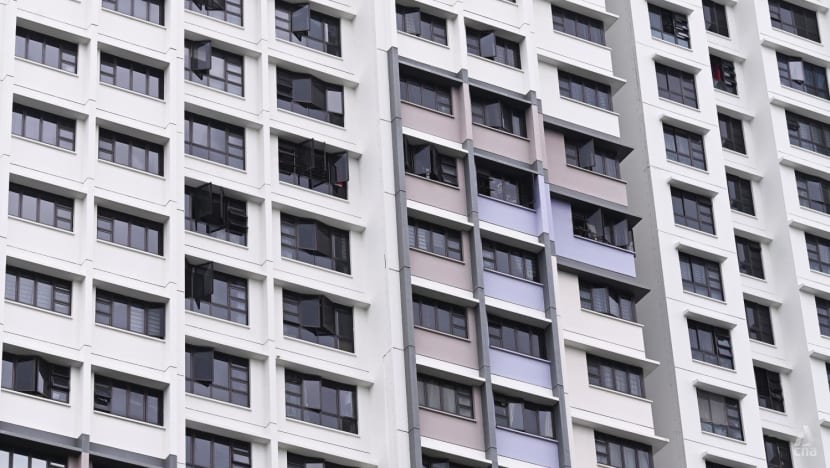
SINGAPORE: To more effectively address neighbour disputes, public officers and other personnel acting on behalf of government agencies may soon be empowered to intervene in serious cases.
These officers will be able to investigate cases and conduct enforcement actions, including entering a home to stop an ongoing nuisance or seize the cause of the nuisance - even without the consent of the legal owner or occupier.
These powers, as well as mandatory mediation between neighbours, are part of proposed enhancements to the Community Dispute Management Framework (CDMF) up for public consultation from Thursday (May 11) to May 31.
The CDMF, established in 2014, stipulates how disputes between neighbours should be resolved, with an emphasis on encouraging amicable resolution at the community level.
Current measures include the introduction of quiet hours to foster considerate behaviour, encouraging residents to undergo mediation at the Community Mediation Centre (CMC), and developing mediation capabilities among grassroots leaders to informally mediate disputes.
Under the current framework, residents may turn to the Community Disputes Resolution Tribunals (CDRT), a specialised court that hears such disputes, as a last resort for egregious cases.
Over the years, the authorities have implemented a slew of measures to address spats between neighbours. These include setting up a Community Advisory Panel on Neighbourhood Noise in April 2022 to study the issue of neighbourhood noise and make recommendations to manage the issue.
According to the Ministry of National Development (MND), the Housing & Development Board (HDB) received about 2,300 cases of feedback on average per month last year.
This figure is lower compared to 2020 and 2021 - when the numbers averaged 2,500 and 3,200 cases per month respectively - but is still higher than pre-pandemic figures. In 2019, it was 400 cases a month.
An inter-agency committee by the Ministry of Culture, Community and Youth, Ministry of Law and MND said on Wednesday that the proposed enhancements to the CDMF seek to encourage pro-social behaviour, facilitate amicable resolution, and resolve neighbour disputes at an early stage as far as possible.
The proposed enhancements would allow for more targeted and effective intervention in serious neighbour disputes, such as cases where disturbances are sustained and intentionally created to harass others.
This involves empowering public officers and personnel acting on behalf of government agencies to investigate nuisance cases and carry out enforcement actions.
The government is proposing that such personnel be able to require involved parties to state his or her particulars and provide statements. They could also install monitoring devices such as noise sensors in common areas of public or private residences with the consent of the legal owner or occupier or managing agent of the common areas, or with permission from the CDRT.
These officers or personnel, which can include officers from the Municipal Services Office, may also issue a warning to nuisance makers, issue notices of mandatory mediation, enter a place of residence to stop an ongoing nuisance, or seize the object causing the nuisance with or without the consent of the legal owner or occupier.
In cases where the nuisance maker is suspected to have a mental health issue contributing to the problem, these personnel may apply to the CDRT for an order requiring the individual to undergo formal psychiatric assessment or treatment.
The authorities are also proposing mandatory mediation, which can be for residents who rejected voluntary mediation or for those who have breached settlement agreement terms.
Past figures show that the proportion of applications for voluntary mediation that actually proceed to mediation is low - less than 30 per cent.
According to the Law Ministry, there were 1,851 registered cases at the CMC in 2020, 2,060 in 2021 and 1,546 last year.
While a low proportion of applications for voluntary mediation proceed to mediation, the settlement rate for mediated cases is high. Between 79 per cent and 85 per cent of cases were successfully mediated from 2020 to 2022.
The ministry said that noise, unacceptable conduct and obstructions to, or misuse of common corridors were the top three causes of neighbour disputes mediated last year.
Disputing neighbours will also be able to register mediated settlement agreements as a CDRT order, which means that a breach of the registered settlement agreement will be treated as a breach of the CDRT order and result in further orders and penalties.
Under proposed enhancements, the CDRT process will also be updated to deliver faster and more effective relief for affected residents who reach that stage.
These could include having the CDRT issue interim orders, or mandatory treatment orders for those suffering from mental health issues that contribute to the problem.
The CDRT could also award costs to an aggrieved party to compensate him or her for the time, work and expenses required for the proceedings.
Currently, the CDRT can require a landlord to put up a compliance bond at the special direction stage. A special direction is issued when the CDRT finds that its initial order was not complied with. If the CDRT does put such a requirement on the landlord, the landlord may terminate the tenancy without incurring liability.
Under the proposal, the lever will be available at an earlier stage of the process. A neighbour will be able to serve a landlord a notice requiring the landlord to take steps to ensure that the tenant stops the nuisance. If the tenant does not stop, the neighbour may commence a CDRT claim against the tenant and seek an order for the landlord to put up a compliance bond and ensure that the tenant complies with the CDRT order.
Public officers or dedicated personnel may also file a request for the CDRT to assume jurisdiction over a dispute, should parties not wish to initiate a claim.
The public will be able to share their views on the proposal via go.gov.sg/feedbackcdmf. Feedback received will be reviewed by the authorities, and refinements made to proposals.
https://www.channelnewsasia.com/sin...agement-framework-public-consultation-3477651
